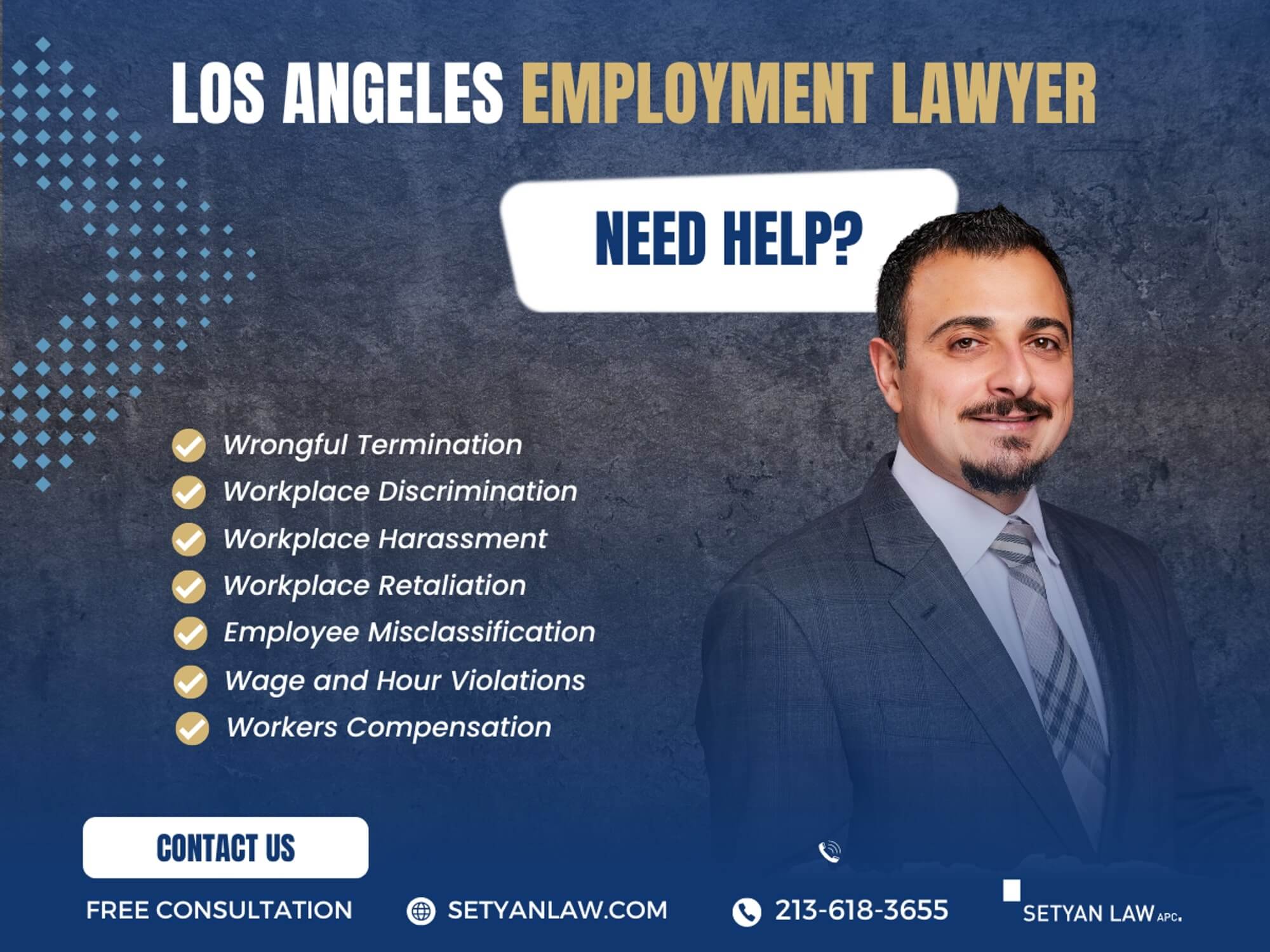Updated September 25, 2025
Supporting Coworkers Facing Retaliation: A Step-by-Step Guide
Have you ever witnessed a colleague being subtly demoted, isolated, or unfairly criticized after they filed a complaint or spoke up about workplace issues? Retaliation in the workplace affects nearly 45% of employees who report misconduct, making it the most common form of workplace discrimination reported to the Equal Employment Opportunity Commission.
Unfortunately, many victims face this battle alone. When colleagues remain silent, the impact of retaliation intensifies, often leading to increased stress, decreased productivity, and even job loss for the targeted employee. However, your support can make a significant difference. By understanding how to properly assist a colleague experiencing retaliation, you not only help protect their career but also contribute to a healthier workplace culture.
This step-by-step guide will equip you with practical strategies to recognize signs of retaliation, provide meaningful support, help with documentation, and understand when to involve HR or legal professionals. With concrete examples throughout, you'll learn exactly what to say and do when a colleague faces unfair treatment after exercising their workplace rights.
Understand What Retaliation Looks Like
Workplace retaliation emerges in various forms and remains significantly underreported despite being the most frequently alleged basis of discrimination in the federal sector [1]. Understanding what constitutes retaliation is essential for effectively supporting colleagues facing this challenging situation.
Common forms of retaliation in the workplace
Retaliation occurs when an employer takes adverse action against an employee for engaging in legally protected activities [2]. These adverse actions can be both obvious and subtle. Obvious forms include:
- Termination or layoffs
- Demotion or denial of promotion
- Reduction in pay or hours
- Disciplinary actions without legitimate cause
- Transfer to less desirable positions
More subtle forms of retaliation are equally damaging yet harder to identify:
- Exclusion from important meetings or workplace events
- Excessive scrutiny or micromanagement
- Unexplained negative performance reviews following historically positive ones
- Social isolation from colleagues
- Schedule changes that conflict with family responsibilities [3]
According to recent data, workplace retaliation accounts for over 50% of all discrimination charges filed with the Equal Employment Opportunity Commission (EEOC) [4]. Furthermore, approximately 79% of U.S. employees perceive retaliation for reporting misconduct, compared to a global median of 61% [5].
Protected activities under employment law
Federal and state laws protect employees who engage in specific activities. These protected activities include:
- Filing or being a witness in an EEO charge, complaint, investigation, or lawsuit
- Communicating with supervisors about employment discrimination
- Answering questions during harassment investigations
- Requesting accommodation for disabilities or religious practices
- Resisting sexual advances or intervening to protect others
- Asking about salary information to uncover potentially discriminatory wages [1]
Additionally, employees are protected when reporting safety violations, participating in concerted activities with coworkers about working conditions, filing workers' compensation claims, or taking legally entitled leave [6]. Notably, these protections apply even if the initial complaint turns out to be unfounded, provided it was made in good faith [7].
How retaliation affects individuals and teams
The impact of retaliation extends beyond the targeted individual, creating ripple effects throughout the organization. For individuals, retaliation often results in:
- Emotional distress and diminished focus
- Compromised ability to perform tasks optimally
- Feelings of isolation and detachment [4]
At the team level, retaliation deteriorates workplace culture in several ways. First, witnessing retaliation instills fear among other employees, discouraging them from voicing legitimate concerns [4]. Consequently, open communication breaks down as employees become cautious about sharing information or collaborating effectively.
Trust—an essential foundation for healthy workplace dynamics—erodes when retaliation occurs. Teams experiencing this breakdown often show:
- Reduced engagement and motivation
- Decreased innovation and willingness to take risks
- Diminished loyalty to the organization [4]
Organizations allowing retaliation to persist face not only cultural deterioration but significant legal and financial repercussions. Legal protections against retaliation exist across various federal laws, including whistleblower protection laws, anti-discrimination statutes, and labor laws [4].
Understanding these patterns helps colleagues recognize when someone might be experiencing retaliation and positions them to offer appropriate support during this challenging situation.
Recognize the Signs Your Colleague May Be Targeted
Recognizing workplace retaliation requires vigilance and attention to patterns of behavior. After a colleague has engaged in protected activity such as reporting harassment or discrimination, certain telltale signs may indicate they've become a target for retaliation. Learning to identify these signals allows you to offer timely support.
Sudden changes in job duties or performance reviews
One of the most visible indicators of potential retaliation involves unexplained changes in job responsibilities or evaluation metrics. The Supreme Court has established that actions like transferring an employee to harder, dirtier jobs—even within the same pay grade—constitute materially adverse actions that could be challenged as retaliation.
Watch for these warning signs:
- Abrupt negative performance evaluations following historically positive reviews
- Reassignment to less desirable positions or tasks after speaking up
- Increased scrutiny or micromanagement that wasn't present before
- Unwarranted disciplinary actions or written warnings
- Denial of training opportunities or professional development
Particularly concerning is when these changes occur shortly after your colleague engaged in protected activities. As noted by the EEOC, "whether an action is reasonably likely to deter protected activity depends on the surrounding facts" and "context matters."
Exclusion from meetings or communication
Isolation serves as a powerful yet subtle retaliatory tactic. In fact, 96% of people surveyed reported experiencing workplace bullying through exclusion [8]. This exclusionary behavior costs US companies approximately $13 billion annually in lost productivity and worker turnover [8].
Signs of communication-based retaliation include:
Being deliberately left out of meetings relevant to your colleague's role
Sudden exclusion from email chains or important discussions
Reduction in workplace social interactions
Colleagues becoming noticeably distant or uncomfortable around the targeted person
Physical relocation away from team members
The EEOC specifically recognizes "excluding an employee from a weekly training lunch that contributes to professional advancement" as an example of actionable retaliation. Meanwhile, serial bullies typically move from one target to the next, making this pattern especially harmful to workplace culture.
Emotional or behavioral shifts
Beyond tangible workplace changes, retaliation often manifests through psychological impacts that affect your colleague's demeanor. Targeted individuals frequently experience emotional distress that becomes visible through behavioral changes.
Look for these emotional indicators:
- Unusual anxiety or stress reactions in workplace settings
- Withdrawal from normal office interactions
- Decreased confidence in expressing opinions
- Unexpected absences or tardiness
- Changes in work quality that seem stress-related
The recovery process from workplace targeting mirrors the stages of grief, involving losses of professional stature, pride, and confidence [8]. Furthermore, retaliation through social exclusion creates feelings of isolation and inferiority that can lead to diminished self-esteem [9].
Understanding these signs enables you to recognize when a colleague might be experiencing retaliation. By identifying these patterns early, you position yourself to offer meaningful support while potentially preventing further detrimental impacts on both your colleague and the broader workplace culture.
How to Offer Immediate Support
Supporting a colleague who faces retaliation in the workplace begins with offering immediate assistance. Once you've identified the warning signs, taking prompt action can help minimize the damage and provide crucial emotional support during a challenging time.
Listen without judgment
When a colleague confides in you about possible retaliation, your initial response matters tremendously. Active listening creates a foundation of trust and allows the affected person to process their experiences fully.
To listen effectively without judgment:
- Give your full attention by putting away electronic devices and maintaining appropriate eye contact
- Allow them to complete their thoughts without interruption
- Remain neutral in your responses, avoiding expressions of shock or disbelief
- Ask clarifying questions rather than making assumptions
- Avoid phrases that minimize their experience like "I'm sure it's not that bad" or "You're probably overreacting"
Active listening helps build stronger relationships between people, which becomes especially important during workplace conflicts. Moreover, it creates an environment where colleagues feel heard and understood. People experiencing retaliation often simply need someone who will listen without judgment or interruption—this provides space for self-reflection and builds confidence for future conversations.
Validate their experience
Validation doesn't mean you must agree with every assessment or conclusion your colleague makes. Rather, it acknowledges that their feelings and perceptions are legitimate.
Effective validation includes:
- Acknowledging their emotions with statements like "That sounds really frustrating" or "I understand why you'd feel targeted"
- Recognizing the courage it took to speak up about their situation
- Avoiding phrases that dismiss their concerns such as "You need to toughen up" or "That happens to everyone"
- Confirming that retaliation is never acceptable, regardless of circumstances
Being nonjudgmental isn't about avoiding making internal judgments—we all do that automatically. Instead, it means ensuring you don't express negative judgments that could hinder your ability to help someone in need. Maintaining a positive attitude and open mind is essential for providing genuine support to colleagues facing workplace retaliation.
Respect their privacy and boundaries
Respecting boundaries means recognizing that while you can offer support, the decisions about how to proceed ultimately belong to your colleague. Privacy considerations are paramount when dealing with sensitive workplace issues.
To honor their privacy and boundaries:
- Ask permission before sharing their situation with others, even those who might help
- Let them set the pace for discussions about the retaliation
- Avoid pressuring them to take specific actions, such as filing formal complaints
- Follow through on any commitments you make to maintain confidentiality
- Recognize that they might need space or time before discussing next steps
Throughout the support process, remember that your role is to empower your colleague rather than take control of their situation. The experience of retaliation often involves a loss of agency in the workplace; your interactions should aim to restore that sense of control rather than further diminish it.
By listening without judgment, validating their experience, and respecting their boundaries, you provide a crucial foundation of support that helps colleagues maintain their dignity and emotional well-being while navigating the challenges of workplace retaliation.
Help Them Document and Report the Issue
Documentation serves as crucial evidence in workplace retaliation cases, often determining whether a claim succeeds or fails. Proper record-keeping transforms "your word against theirs" into concrete proof that can substantiate a colleague's experience.
Encourage them to keep a record of incidents
Effective documentation creates a chronological timeline that connects protected activities to adverse actions. Advise your colleague to maintain detailed records including:
- Dates, times, locations, and descriptions of each retaliatory incident
- Names of individuals involved and any witnesses present
- Copies of all relevant communications (emails, texts, memos)
- Performance evaluations before and after the protected activity
- Any sudden changes in job duties or treatment
Contemporaneous documentation—records created at or near the time events occur—carries significantly more weight in investigations. Suggest your colleague keep this information in a secure location outside the workplace, such as a personal email account or home computer.
Assist in reviewing company policies
Most organizations have established anti-retaliation policies. Help your colleague locate and understand these documents by:
- Reviewing the employee handbook together for relevant sections
- Identifying specific protections against retaliation in company documentation
- Understanding internal complaint procedures and timeframes
- Clarifying their rights under federal and state laws
Remember that different laws have different reporting deadlines—some as short as 30 days for OSHA whistleblower complaints, while others allow 180-300 days for EEOC complaints. Ensuring your colleague understands these timelines prevents them from losing their right to pursue claims.
Support them in filing internal complaints
When your colleague decides to report internally, provide support throughout the process:
First, encourage them to follow established company procedures exactly as outlined in policy documents. Skipping steps might complicate future legal options.
Subsequently, help them prepare a clear, professional complaint that explicitly states they're reporting retaliation. This should summarize the protected activity they engaged in, followed by specific adverse actions they've experienced, with a timeline connecting these events.
Thereafter, suggest they document the complaint process itself—including who received the complaint, when it was submitted, and all responses received. Following any verbal discussions, they should send brief email summaries to create permanent records.
Throughout this process, respect your colleague's decisions about how to proceed. Workplace retaliation often involves a loss of agency; your role is to provide information and support without taking control of their situation.
When and How to Involve Legal or HR Support
Taking legal action becomes necessary once internal remedies prove insufficient for addressing workplace retaliation. As a supportive colleague, your guidance at this critical juncture can prove invaluable.
Understanding when HR should be contacted
HR involvement represents the first formal step in addressing retaliation. Advise your colleague to contact HR immediately after experiencing potential retaliation, as approximately 45% of EEOC charges include a retaliation component [10].
Encourage them to:
- Submit complaints in writing, keeping personal copies of all documentation
- Clearly connect retaliatory actions to their initial protected activity
- Request regular follow-up meetings, as responsible employers conduct check-ins "one week out, two weeks out, then maybe switch to three weeks out" [10]
Remember that internal reporting serves dual purposes—attempting resolution within the organization while establishing a formal record should external escalation become necessary.
How to help them find legal counsel
Should HR intervention prove inadequate, legal guidance becomes essential. A workplace retaliation attorney can:
- Evaluate the strength of their case
- Navigate the complexities of filing with government agencies
- Represent them in legal proceedings [11]
Suggest they seek attorneys specializing in employment law through:
- State bar association referral services
- Legal aid societies offering free or reduced-cost representation
- Employment rights advocacy organizations
Emphasize the importance of acting promptly, as strict time limits apply—typically 180 days from the retaliatory incident to file with the EEOC [11].
What to expect from the EEOC process
The EEOC process follows a structured path:
First, your colleague submits a charge through the EEOC's public portal [12].
Next, the EEOC investigates the claim, possibly attempting mediation between parties [11].
Finally, if resolution proves impossible, the EEOC issues a "Right to Sue" letter permitting legal action [11].
Throughout this process, remind your colleague that documentation remains their strongest asset. As employment law experts note, "Who has the best documentation and the most likable and credible witnesses wins" [10].
Conclusion
Supporting colleagues through workplace retaliation requires courage, awareness, and thoughtful action. Throughout this guide, we've explored the critical steps needed to stand with coworkers facing unfair treatment after exercising their workplace rights.
Workplace retaliation damages not only individual careers but also deteriorates team dynamics and organizational culture. Your willingness to recognize warning signs—whether sudden performance review changes, exclusion from communication, or emotional shifts—makes a significant difference in breaking the isolation many targeted employees experience.
Effective support begins with active listening without judgment. Simply allowing a colleague to share their experience creates a foundation of trust during a vulnerable time. Additionally, validating their concerns while respecting their privacy gives them space to process the situation and make informed decisions about next steps.
Documentation remains particularly crucial in retaliation cases. Helping your colleague maintain detailed records of incidents, communications, and timeline connections between protected activities and adverse actions transforms vague concerns into concrete evidence. This evidence becomes essential whether addressing the issue internally or pursuing external remedies.
Most importantly, remember that timing matters. Early intervention through proper HR channels often resolves situations before they escalate. However, recognizing when legal support becomes necessary protects your colleague's rights when internal processes fail.
Supporting a colleague facing retaliation ultimately strengthens workplace culture for everyone. Your actions demonstrate that employees who exercise their rights deserve protection rather than punishment. Though challenging, this supportive stance helps create a workplace where speaking up about legitimate concerns becomes safer for all employees.
The path through workplace retaliation certainly contains challenges, yet no one should walk it alone. Your informed support creates a meaningful difference—both for your targeted colleague and for building a more just workplace environment.
References
[1] – https://www.eeoc.gov/retaliation
[2] – https://www.bamboohr.com/blog/strong-workplace-retaliation-case
[3] – https://d.law/blog/8-examples-of-workplace-retaliation
[4] – https://www.polonious-systems.com/blog/long-term-impact-workplace-retaliation/
[5] – https://punchworklaw.com/blog/workplace-retaliation-is-on-the-rise/
[6] – https://www.superlawyers.com/resources/wrongful-termination/what-are-protected-activities-under-wrongful-termination-law/
[7] – https://www.nolo.com/legal-encyclopedia/workplace-retaliation-employee-rights-30217.html
[8] – https://www.hracuity.com/blog/how-to-identify-exclusion-in-the-workplace-5-examples/
[9] – https://www.lawwv.com/blog/2024/june/the-impact-of-workplace-retaliation-on-employee-/
[10] – https://www.shrm.org/topics-tools/employment-law-compliance/retaliation-claims-101-what-every-employer-needs-to-know
[11] – https://www.justiceatwork.com/the-legal-remedies-for-workplace-retaliation-victims/
[12] – https://www.usa.gov/job-discrimination-harassment
Understanding what constitutes a strong retaliation case is essential for employees who have faced adverse actions after engaging in protected activities. By recognizing the key elements of retaliation—protected activities, adverse actions, and causal connections—employees can better navigate their rights and seek justice. If you believe you have been a victim of retaliation, it is crucial to document your experiences, consult with an attorney, and take appropriate action to protect your rights. Remember, you are not alone in this process, and legal support is available to help you through the challenges you may face.
Call Setyan Law at (213)-618-3655 to schedule a free consultation.







